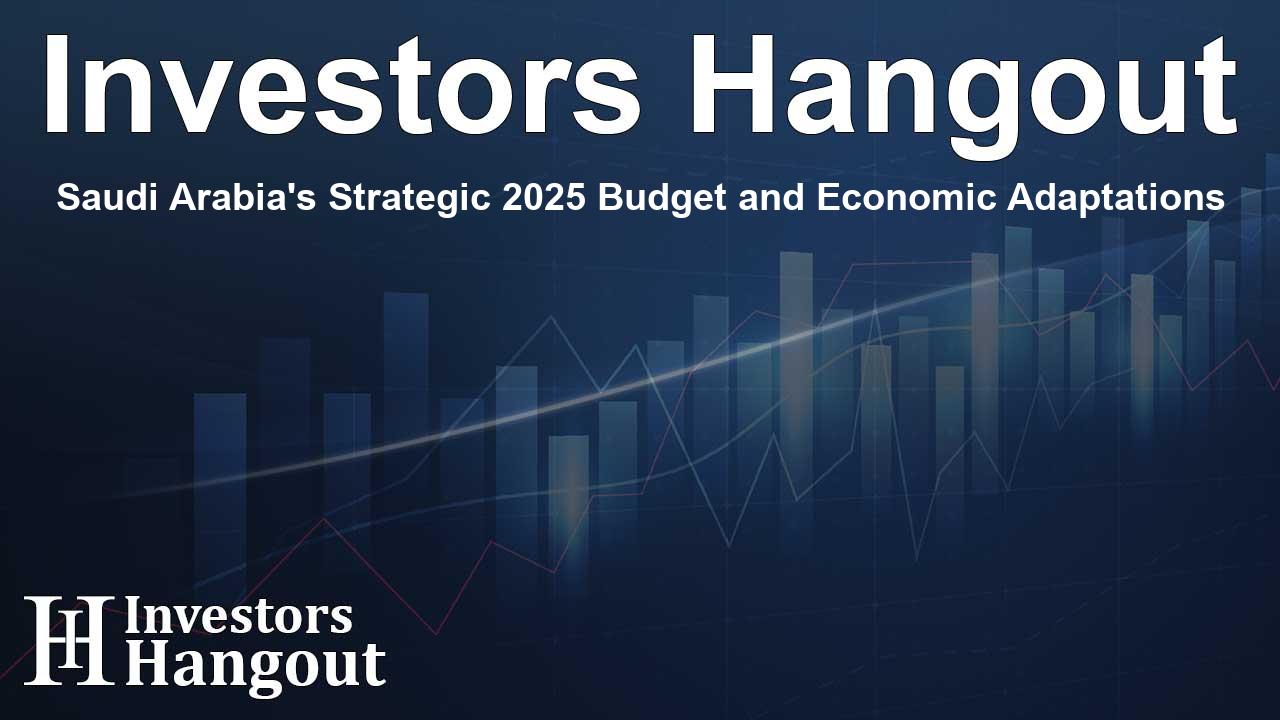Saudi Arabia's Strategic 2025 Budget and Economic Adaptations

Insights into Saudi Arabia's 2025 Budget
Saudi Arabia has crafted a state budget for 2025, projecting a fiscal deficit of approximately 101 billion riyals (around $26.88 billion). This shortfall aligns with previous government forecasts made earlier in the year, amounting to about 2.3% of the nation's GDP. The government's finance minister, Mohammed Al Jadaan, emphasizes that this budget reflects ongoing commitment to major projects intended to diversify the economy and reduce dependence on oil revenues.
Ongoing Investment in Vision 2030
The Saudi government is steadfast in its strategic spending directed towards projects linked to Vision 2030. This ambitious initiative focuses on revitalizing the nation’s economy by reducing oil dependency, investing in infrastructure, tourism, and manufacturing sectors, and creating numerous job opportunities.
Projected Revenue and Expenditure
The expected expenditure for 2025 is pegged at 1.285 trillion riyals, indicating a consistency in financial planning, while total revenue is estimated to reach 1.184 trillion riyals. The finance minister's comments underline that despite challenges from fluctuating oil prices and production limits, the kingdom is moving forward with its robust spending agenda.
The Gigantic Vision 2030 Projects
Saudi Arabia is particularly focused on massive projects such as NEOM, a futuristic city envisioned to reshape the landscape of living and working in the kingdom. Despite facing budget constraints and the need for prioritization, Jadaan reassures that NEOM is a long-term vision, requiring decades of development and adaptation. He expressed that it is unreasonable to expect it to be fully operational within a short timeframe.
Financial Stability and Debt Projections
As part of the budget preparations, the kingdom's total public debt is forecasted to climb to around 1.3 trillion riyals by 2025. This marks a slight increase from the anticipated 1.2 trillion riyals in the current year, signifying an effort to balance growth with fiscal responsibility as debt levels remain just below 30% of GDP.
Dividends and International Financing
In a critical move, Jadaan reiterated the kingdom's focus on seeking international and local financing options to support the budget deficit and manage debt. Notably, the government is not planning on transferring additional ownership stakes in Aramco to its Public Investment Fund, which plays a vital role in funding Vision 2030 initiatives.
Implications of Oil Prices
The trajectory of oil prices continues to play a crucial role in the kingdom’s economic landscape. As Aramco is a significant source of revenue for the government, any fluctuations in oil prices could impact the stability of dividends, thus affecting the budget. Jadaan stated that the budget forecasts do not include potential additional dividends from Aramco, signaling caution in fiscal planning amid uncertain market conditions.
Future Projections and Economic Growth
Looking ahead, the Saudi government predicts economic growth of approximately 0.8% for 2024, with expectations to significantly enhance this to around 4.6% in 2025. This growth is primarily anticipated from non-oil sectors, as the government adjusts its strategies in response to shifting market conditions.
Frequently Asked Questions
What is the projected fiscal deficit for Saudi Arabia in 2025?
The projected fiscal deficit for Saudi Arabia in 2025 is around 101 billion riyals (approximately $26.88 billion).
How is Vision 2030 related to the budget?
Vision 2030 is a central focus in the budget, as it drives strategic spending aimed at diversifying the economy and reducing reliance on oil.
What are the major spending plans for the upcoming year?
The upcoming budget prioritizes the completion of essential components of significant projects like NEOM and other infrastructure developments.
How will oil prices affect Saudi Arabia's fiscal plans?
Oil prices significantly influence the budget, as variations can impact revenue from Aramco, which the government relies on for considerable support.
What is the government’s outlook on economic growth for 2024?
The government forecasts economic growth of 0.8% for 2024, with expectations of rising to 4.6% in 2025, driven by non-oil sectors.
About The Author
Contact Hannah Lewis privately here. Or send an email with ATTN: Hannah Lewis as the subject to contact@investorshangout.com.
About Investors Hangout
Investors Hangout is a leading online stock forum for financial discussion and learning, offering a wide range of free tools and resources. It draws in traders of all levels, who exchange market knowledge, investigate trading tactics, and keep an eye on industry developments in real time. Featuring financial articles, stock message boards, quotes, charts, company profiles, and live news updates. Through cooperative learning and a wealth of informational resources, it helps users from novices creating their first portfolios to experts honing their techniques. Join Investors Hangout today: https://investorshangout.com/
The content of this article is based on factual, publicly available information and does not represent legal, financial, or investment advice. Investors Hangout does not offer financial advice, and the author is not a licensed financial advisor. Consult a qualified advisor before making any financial or investment decisions based on this article. This article should not be considered advice to purchase, sell, or hold any securities or other investments. If any of the material provided here is inaccurate, please contact us for corrections.
